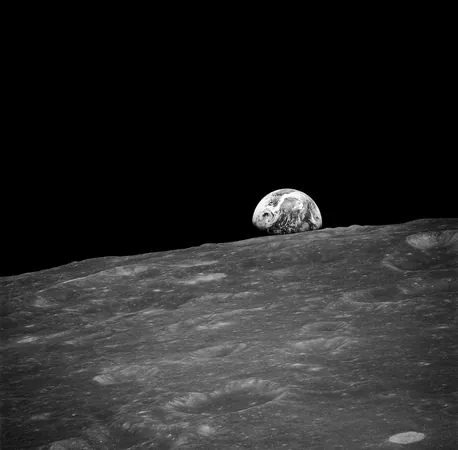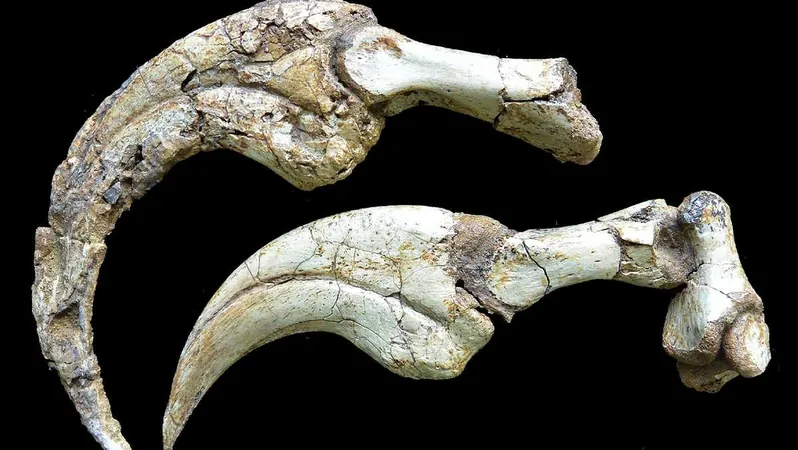
NASA's Artemis Program Drops 'First Woman' Moon Landing Reference Amid Policy Changes
2025-03-24
Author: Mei
Introduction
In a surprising shift, NASA has removed the references to landing the "first woman" on the moon from its Artemis program's promotional materials. As of this past Friday, the updated official pages no longer include the statement that was once a central part of the program’s goals, which highlighted the landing of the "first woman, first person of color, and first international partner astronaut on the moon."
Administrative Directive
This development coincides with a broader directive from the Trump administration, which aims to erase diversity, equity, and inclusion initiatives from federal websites. Originally, the Artemis program, announced during Trump’s first term, was celebrated for breaking barriers in space exploration.
NASA's Response
While NASA has not responded to inquiries regarding this shift, the updated Artemis pages now emphasize the upcoming mission's technological advancements. They state, “Artemis III will build on the crewed Artemis II flight test, adding new capabilities with the human landing system and advanced spacesuits to send the first humans to explore the lunar South Pole region.”
Milestones of the Artemis Program
The Artemis program achieved a significant milestone with a successful uncrewed flight to the moon in 2022, and plans for its first crewed flight, Artemis II, are set for no later than April 2026. The crew for Artemis II is especially noteworthy, featuring Christina Koch, the first woman to fly in a lunar mission, Victor Glover, the first person of color, and Canadian astronaut Jeremy Hansen, representing the first international partner. They will ride alongside commander Reid Wiseman in a journey that will circle but not land on the moon.
Future Missions
The historic goal of landing on the moon again, the first since Apollo 17 in 1972, has been assigned to Artemis III, which is anticipated to take place in summer 2027. While the crew for this pivotal mission has not been announced, there has been speculation about an all-female landing team, a statement previously made by Jim Bridenstine, NASA's administrator during the Trump era.
Diversity Commitment
Additionally, the commitment to diversity continued from the early announcements under President Biden, though NASA has yet to specify whether the first person of color to moonwalk will participate in Artemis III or future missions. Historically, the 24 astronauts who have journeyed to the moon have all been white males, making the pursuit of diversity in space exploration even more critical.
Policy Changes
Changes within NASA, prompted by the Trump administration, have also included the dismantling of its Office of Diversity and Equal Opportunity. Despite these alterations, NASA maintains some language around inclusivity in its careers section, which now states the agency “explores the unknown in air and space, innovates for the benefit of humanity, and inspires the world through discovery.” This marks a noticeable shift from previous commitments emphasizing a dedication to recruiting diverse talent to shape the future of space exploration.
Conclusion
As the space community and advocates for diversity watch these developments closely, the evolution of the Artemis program continues to raise essential questions about representation in one of humanity's most ambitious endeavors. What does the future hold as we aim for the stars? Stay tuned for updates on this evolving story!

 Brasil (PT)
Brasil (PT)
 Canada (EN)
Canada (EN)
 Chile (ES)
Chile (ES)
 Česko (CS)
Česko (CS)
 대한민국 (KO)
대한민국 (KO)
 España (ES)
España (ES)
 France (FR)
France (FR)
 Hong Kong (EN)
Hong Kong (EN)
 Italia (IT)
Italia (IT)
 日本 (JA)
日本 (JA)
 Magyarország (HU)
Magyarország (HU)
 Norge (NO)
Norge (NO)
 Polska (PL)
Polska (PL)
 Schweiz (DE)
Schweiz (DE)
 Singapore (EN)
Singapore (EN)
 Sverige (SV)
Sverige (SV)
 Suomi (FI)
Suomi (FI)
 Türkiye (TR)
Türkiye (TR)
 الإمارات العربية المتحدة (AR)
الإمارات العربية المتحدة (AR)